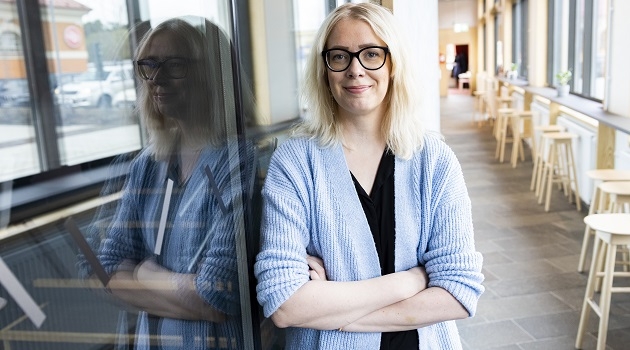New platform to improve drug development and animal welfare

Emmi Puuvuori is committed to creating a game-changing resource for animal model information for researchers.
A drive to provide accessible information for more reliable, reproducible and efficient pre-clinical and translational research made Emmi Puuvuori take the leap into building a whole new web platform for scientists around the world.
Emmi Puuvuori was a PhD student in translational medicine when she realised that information about different animal models is scattered in different publications and books, or simply exists as spoken knowledge.
“I worked with different animal models, and started searching for a platform to find information about their translatability. But there was no such thing!”
To address this problem, Emmi Puuvuori decided to create a web platform called In Vivo Library, where protocols of different animal models are easily accessible through a user-friendly search function.
More reliable translational research
Today, the majority of drug clinical trials fail, with only approximately 9.6% of drugs reaching the consumer market. Emmi Puuvuori explains that this is partly because the results obtained from animal models used in the preclinical research do not translate well into human. The drug development process is expensive, time-consuming and possibly even risky to the patients participating in the clinical studies needed.
In Vivo Library will provide accessible information for more reliable, reproducible and efficient pre-clinical and translational research, improving its quality as well as increasing research animal welfare through promoting 3R.
“The 3Rs refer to the principles of animal research that aim to minimise the use of animals, improve their welfare, and replace them with non-animal alternatives where possible,” explains Emmi Puuvuori.
Prototype in place
To develop the platform, Emmi Puuvuori received support from UU Innovation, including advisors and an external mentor.
“From my mentor I got a lot of useful feedback and questions about things I could fine-tune in my project. It was very valuable to get the perspective from someone who had done something similar before. UU Innovation advisors helped me understand the next steps to take and provided guidance on how to get feedback from potential users. Thanks to their funding, I was able to build a prototype of the website, which is instrumental to demonstrating the website’s key features to potential users and partners."
Emmi Puuvuori is now starting to work on curating translational data, and is applying for long-term funding for setting up and running the platform. She is also looking for people who are interested in using or contributing to the platform.
"If you're looking to contribute to this work and increase visibility for your animal model, I'm all ears," says Emmi Puuvuori.
Frida Johnson
3Rs: Refinement, Reduction, Replacement
- Refinementinvolves improving animal welfare and reducing any pain, suffering, or distress that may be experienced during research.
- Reduction involves minimising the number of animals used in research, without compromising scientific validity or the welfare of the animals.
- Replacement involves finding alternatives to animal use, such as in vitro models or computer simulations.
- The 3Rs are widely accepted as an ethical framework for animal research and are endorsed by many organisations, including the European Union (EU) and the National Institutes of Health (NIH).
- By applying the 3Rs, researchers can improve the quality of their research while minimising animal use and promoting animal welfare.
